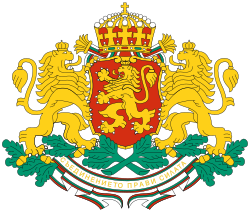| Bulgarian Citizenship Act | |
|---|---|
 | |
| Parliament of Bulgaria | |
| |
| Enacted by | Government of Bulgaria |
| Status: Current legislation | |
| Part of a series on |
| Bulgarians Българи |
|---|
 |
| Culture |
| By country |
| Subgroups |
| Religion |
| Language |
| Other |
Bulgarian nationality law is governed by the Constitution of Bulgaria (article 25 and 26) of 1991 and the citizenship law of 1999 (with changes made in various years through to 2009). [1]
Contents
- Acquisition of Bulgarian citizenship
- Dual citizenship
- Citizenship of the European Union
- Travel freedom of Bulgarian citizens
- See also
- References
- External links
It is mainly based on jus sanguinis; however, it is possible to obtain citizenship after 5 years of residence in Bulgaria. [2] Naturalisation is available on the basis of residence in certain types of status; marriage or on the basis of origin or at the discretion of the government of Bulgaria to persons of merit. The Bulgarian Ministry of Justice is in charge of processing citizenship applications.
Every Bulgarian citizen is also a citizen of the European Union.
